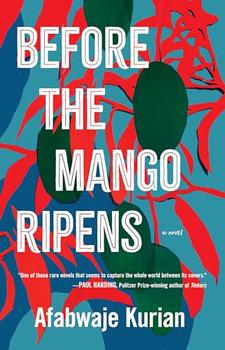Summary | Excerpt | Reviews | Beyond the Book | Readalikes | Genres & Themes | Author Bio

A Novel
by Ntozake Shange, Ifa Bayeza
That's what Eudora never found, a place she belonged, and now she was going to force the world to just accept her. Eudora could not bring herself to feel the fiddler's lyric, the gourd's invitations; her own limbs resisted harmony with anything that quelled the dissonance she knew to be herself. Betty jumped once, no twice, round and about the place where she knew her mother's bones waited for her words of love and reverence. She was saying good-bye in silence which broke her heart. Betty became the multitude of sounds and gestures she knew to be safe for those who'd crossed over. The music of a people tumbled from her till only sobs and a writhing body grabbed to hold on to her life. Betty rose weaker than she'd ever been when a child fell from her. Barely breathing she knew the song of her was, indeed, so much a part of her she'd be humming it in her own grave one day. So averse to silence she'd become, the butterflies were clapping bout her head, only no one else could hear them.
Her own daughters' graves were a bit more trouble to identify. Elma, so fair and pampered by the Mayfields she took to despising her mother and her mother's mother, simply disappeared one day. No more than seventeen, she determined that green eyes and yellow hair made her ready for what ever the world had to offer. Heavens, no! Not the world of her mother and her mother's mother, but the world of the father, who thought her beauty set her free. Pity. Betty saw her child's life or death depended
on her mood, when she looked at the clouds over the horizon. If the
clouds were thick, white, billowing, Betty figured the white world was
treating her daughter good. It was those thin fast-moving wisps of cloud that troubled Betty. Didn't leave enough for a soul to hold on to. The world was moving too fast and free with Elma, which to Betty signaled a mighty probability of stillness, the silence of the unmourned. And she'd just have to wait to get to Charleston to visit with her dear Blanche. Juliet, her youn gest, was lost to her. Juliet, Eudora's mother, who simply had no song. She'd let love fly off with her voice and she had nothing to say to
Eudora. Now Eudora was going to Charleston to set something straight
that wasn't crooked, going to Charleston to make herself known to the world, when the world was full of young gals like her and dealt them no easy hand, no dance cards or honor.
Shame, Shame. She had to steal away, play half mad to get to the grave of her lover and owner, her master and partner, Julius Mayfield himself. How could he die fighting to keep his own enslaved, children he played with, inspected and vowed never to sell, but own was no contradiction. What kind of man had she shared so much of herself with, did he know she'd done that? Laid open her womanhood and soul as much as any wife anywhere ever had. Over and over she'd gifted him with healthy, never before seen children. Girls whose eyes suggested fog-laden dawns, whose skin was opalescent, whether bronze or ivory. Girls so wantonly free a sane soul couldn't conceive of them as some white's slaves. Yet they were property, like chattel or so much hog entrails, these girls, begat with joy sometimes, from power other times. Either way, how could he at the mere suggestion that she, Betty, the one who laid naked gainst the blond hair silken on his chest, whose legs entangled themselves with his arms and calves, have their mother re-enslaved because he, Mayfield, the planter, heard something about a wench close to him aiding troublemakers to make their way north? He'd heard. He'd heard her screams at childbirth. He knew her sighs of pleasure or terrible release from ecstasy. But what he'd heard from some anonymous white man or maybe a niggah was enough to take those same soft hands of hers that pulled the damp hair on his neck late in the night, holding on for a different kind of glory call, those same hands could now be shackled and set back to boiling lye, washing the undergarments of the white lady who thought she was his wife.
Excerpted from Some Sing, Some Cry by Ntozake Shange and Ifa Bayeza. Copyright © 2010 by Ntozake Shange and Ifa Bayeza. Excerpted by permission of St. Martin's Press. All rights reserved. No part of this excerpt may be reproduced or reprinted without permission in writing from the publisher.




The moment we persuade a child, any child, to cross that threshold into a library, we've changed their lives ...
Click Here to find out who said this, as well as discovering other famous literary quotes!
Your guide toexceptional books
BookBrowse seeks out and recommends the best in contemporary fiction and nonfiction—books that not only engage and entertain but also deepen our understanding of ourselves and the world around us.